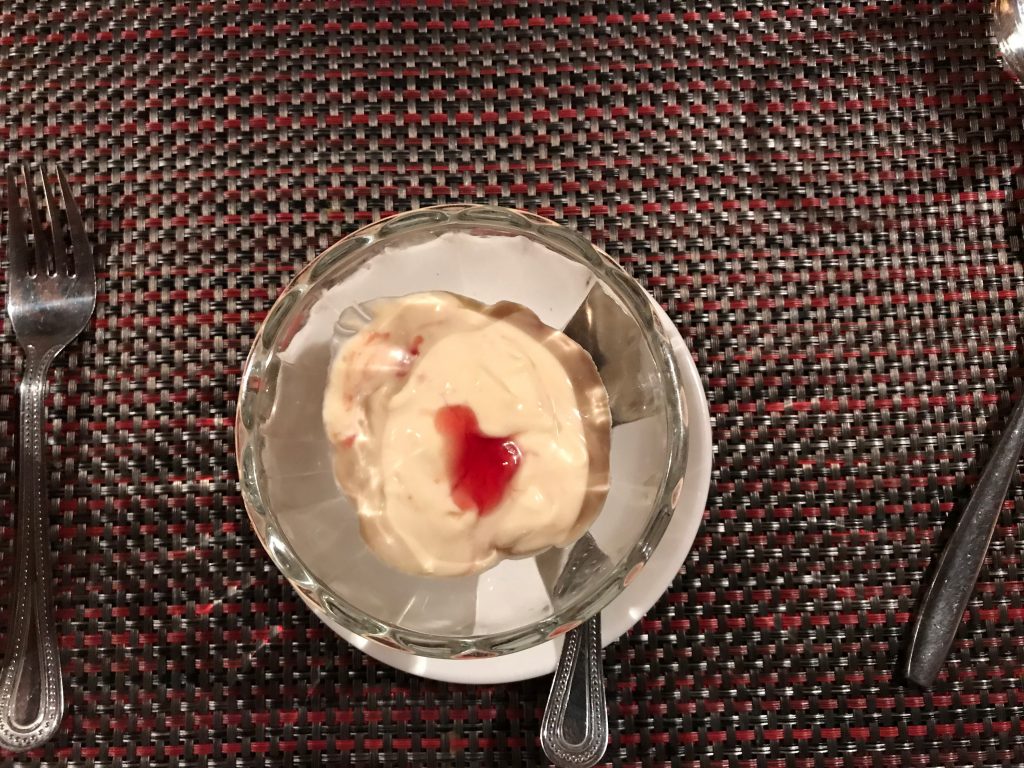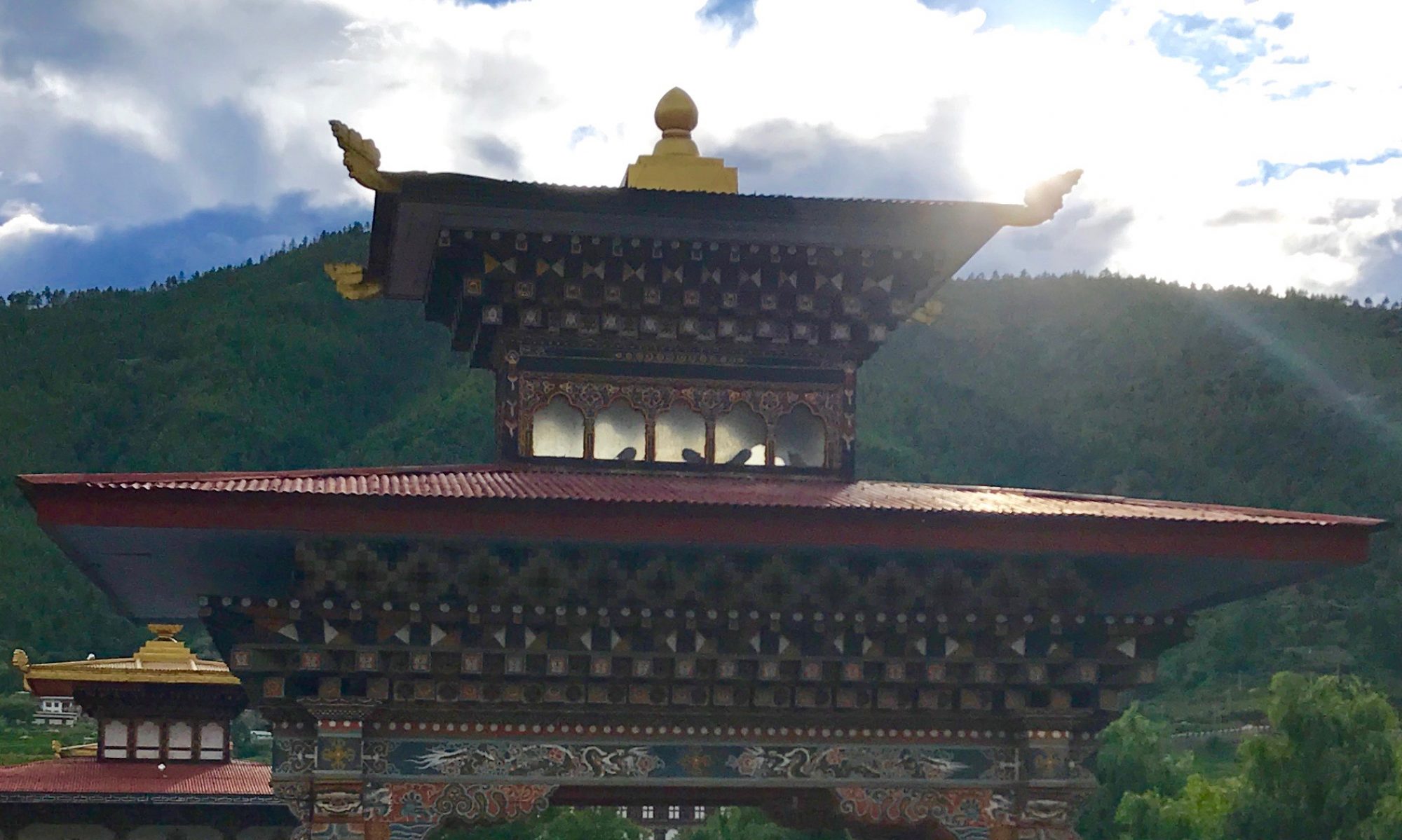After lunch, Ugyen took us off in the other direction, to the “burning lake” (mebar—burning, tsho—lake) of Guru Rinpoche and Pema Lingpa.
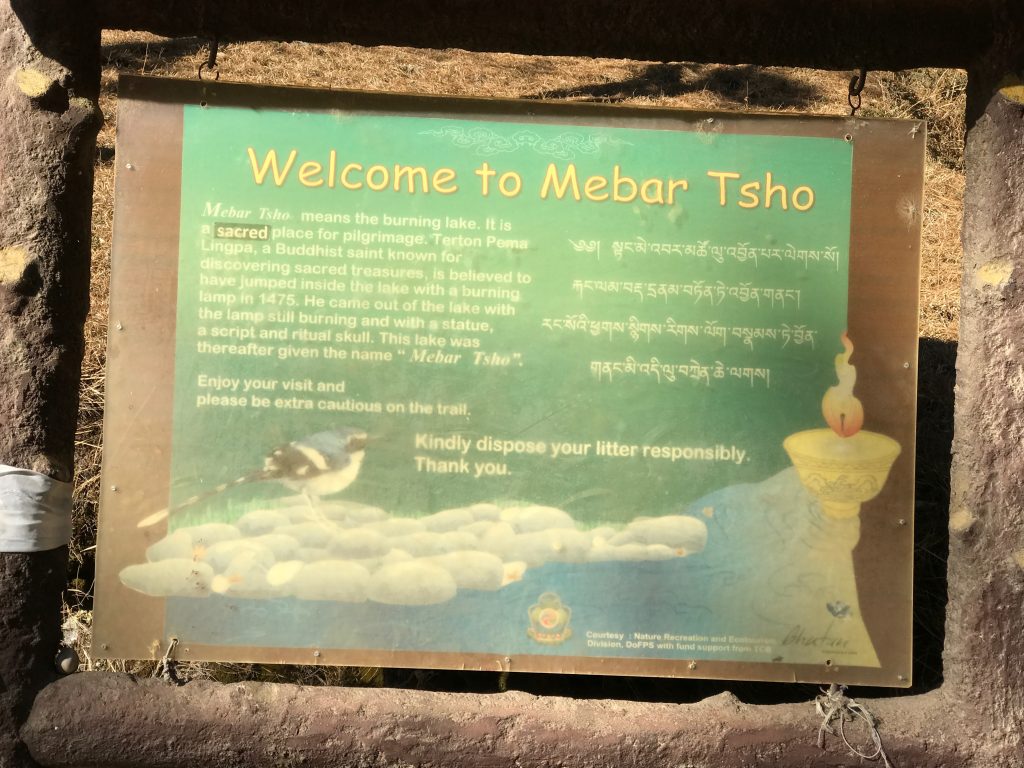
Here’s the story.
When Guru Rinpoche was busy in the Bumthang area in the middle of the eighth century, he buried various spiritual treasures (terma) in the area: some are supposedly in the lake under the Jampa lakhang; others in a small dark eddy of a ravine some twenty minutes out of Jakar.
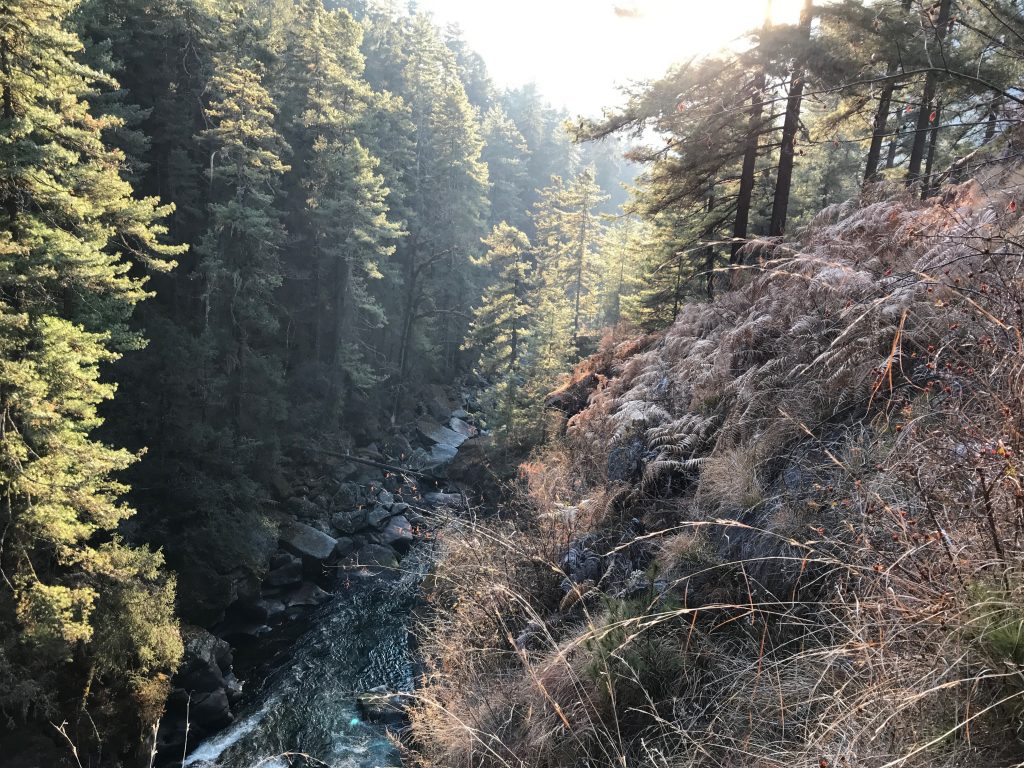
In 1450, a boy named Pema Lingpa was born in a small village in the Tang valley of the Bumthang area. He learned the craft of blacksmithing as a boy and chainmail he produced is still hanging at Tamshing and Thangbi goembas. At the age of 25, he had a dream in which a monk gave him a scroll in dakini script. Each word of dakini script stands for 1000 human words, so translating the scroll was a massive job, but with the help of dakinis, Pema Lingpa eventually finished, and he turned the translation into the basis of teachings. The story makes me think of William Blake, but even Blake wasn’t trying to capture a thousand-words-in-a-single-word vision of the world. Over the course of his life, with the guidance of this dakini-authored script and other dreams, Pema Lingpa discovered 34 statues, scrolls, and sacred relics.
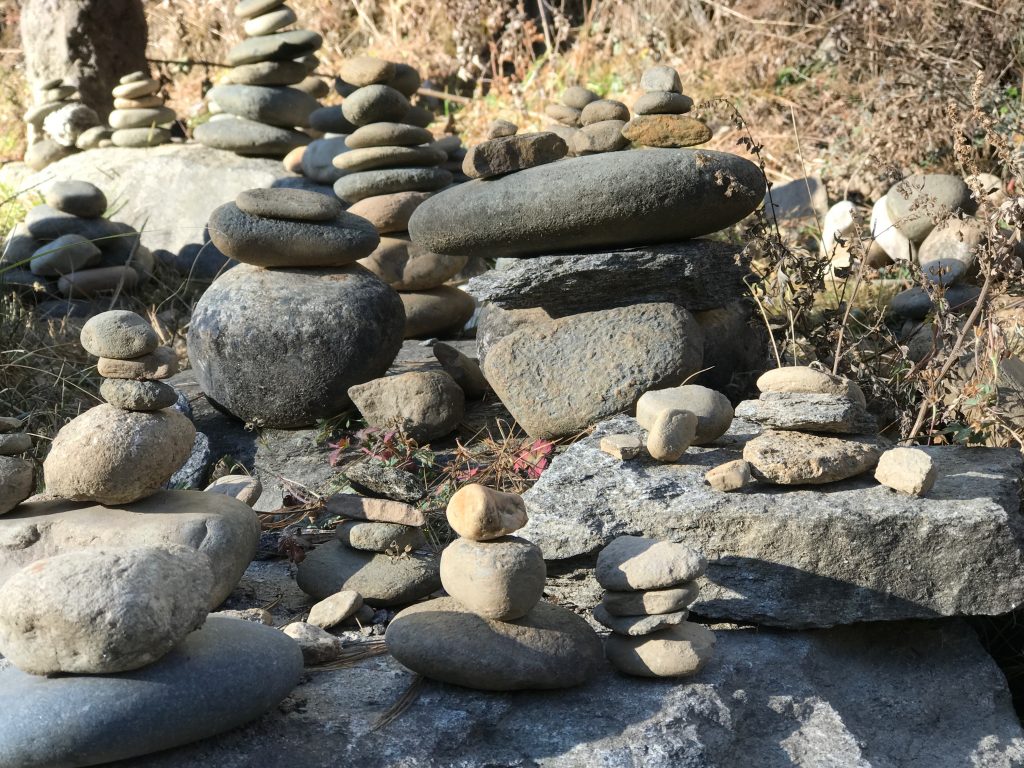
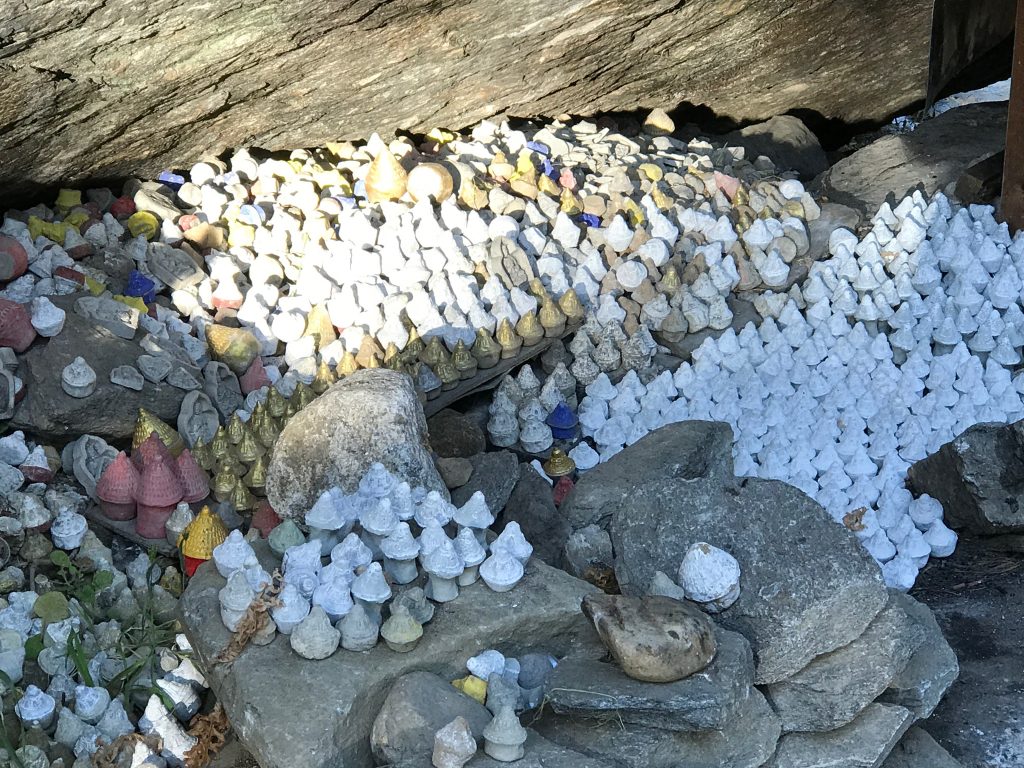
At the age of 27, presumably still in the midst of his translation project, Pema Lingpa had a dream that told him to go to a part of the river where it widens enough to look like a small lake.
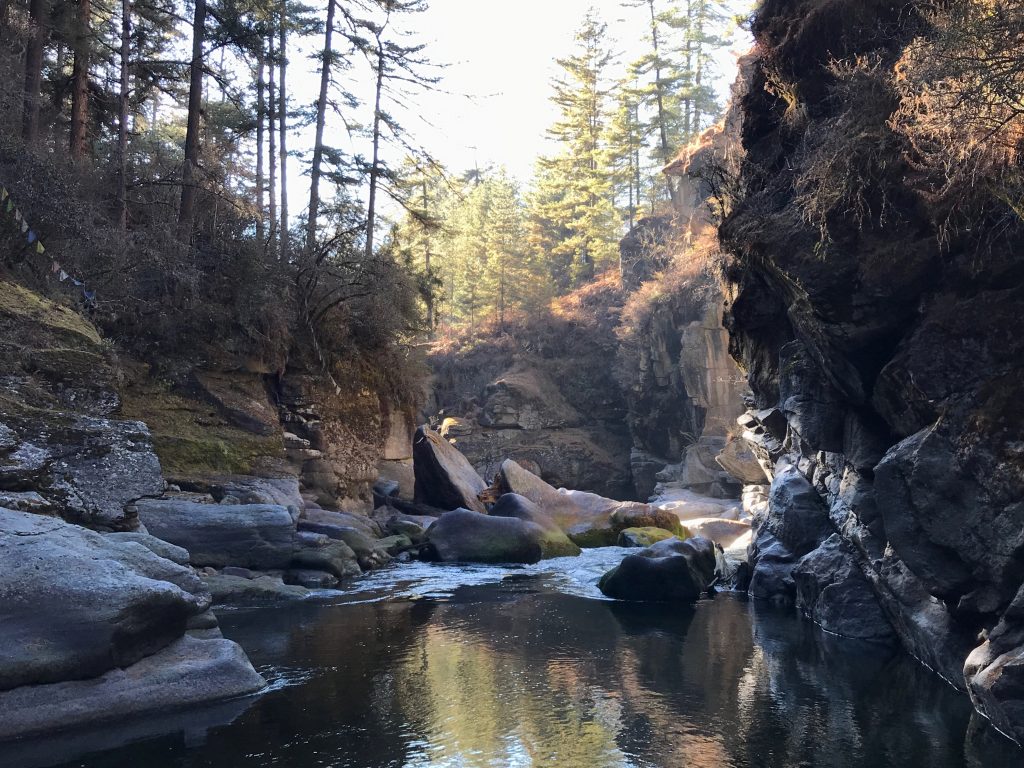
Standing on a large rock, he stared into the lake until he saw a temple with many doors, only one of which was open. He dove into the water and found himself in a large cave in which a life-size statue of Buddha sat on a throne, surrounded by many chests. An old one-eyed woman handed him one of the chests and then Pema Lingpa suddenly found himself standing on a rock at the side of the river, holding the treasure.
That treasure told him to go back to the river, but by this time, his activities were starting to draw attention. Many people gathered to watch him, and the penlop accused him of deceiving the people. Pema Lingpa took a lighted lamp and said, “If I am a genuine revealer of your treasures, then may I return with a treasure now, with my lamp still burning. If I am some demon, then may I die in the water.” He dove in and was under water long enough that people thought he had died—when suddenly he reappeared on the side of the river with the lamp still burning. He had a statue and a treasure chest in his hands.
The light and calm by the water’s edge felt magical to us, partly because of the story of course but largely for their own sake.
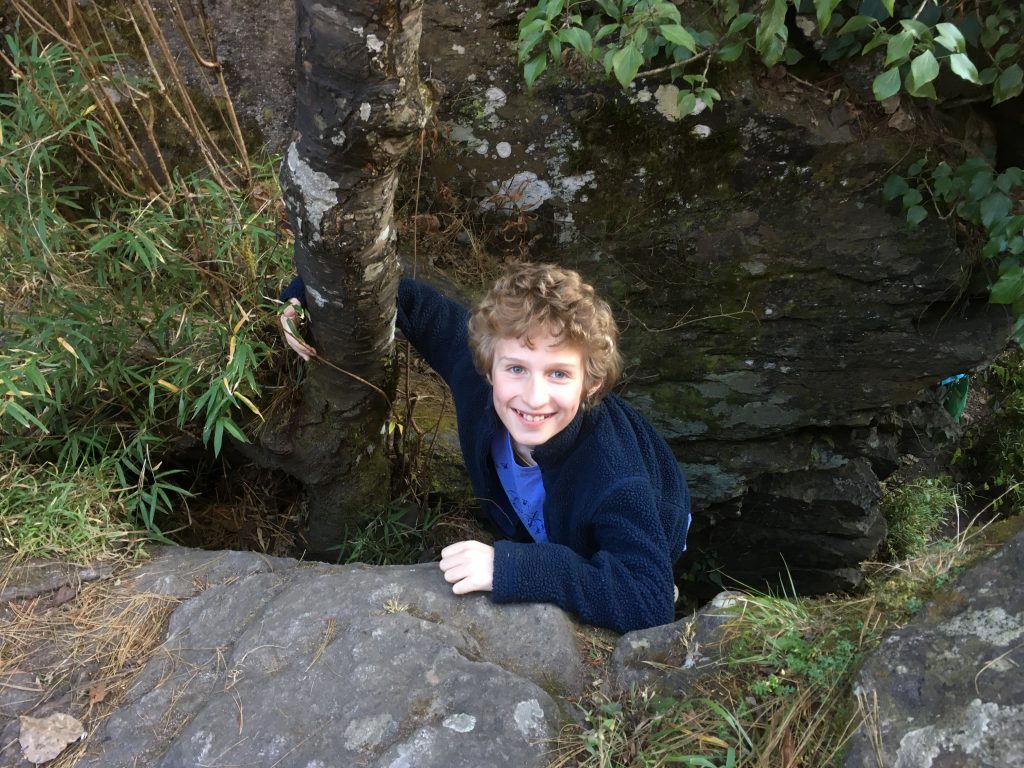
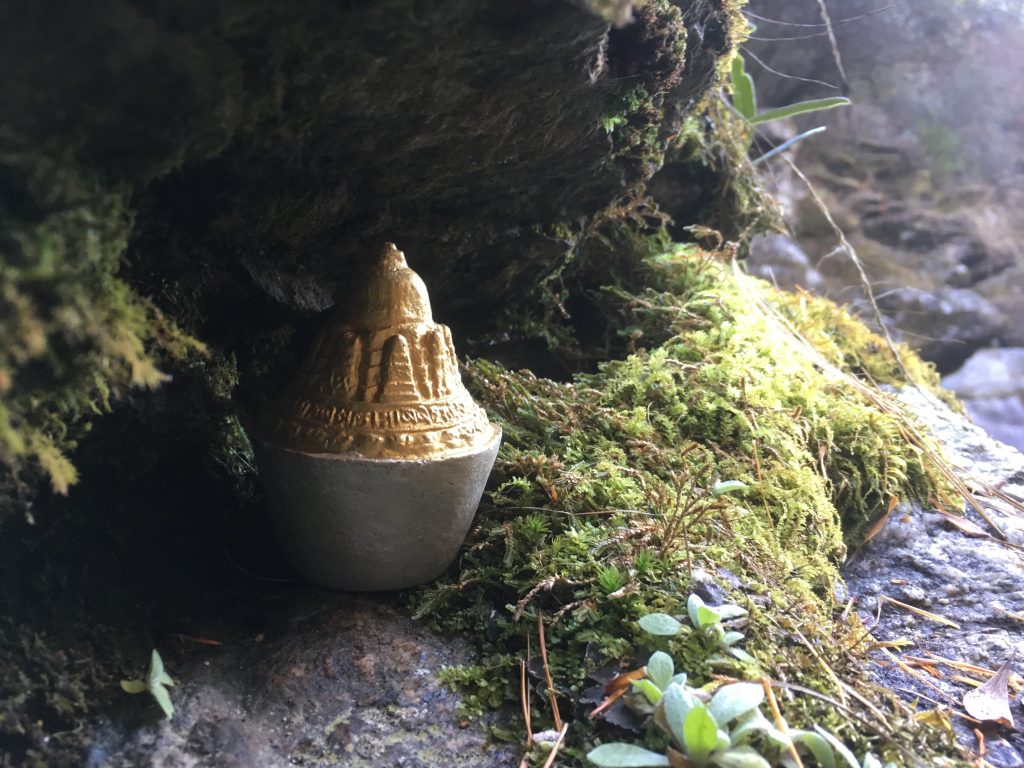
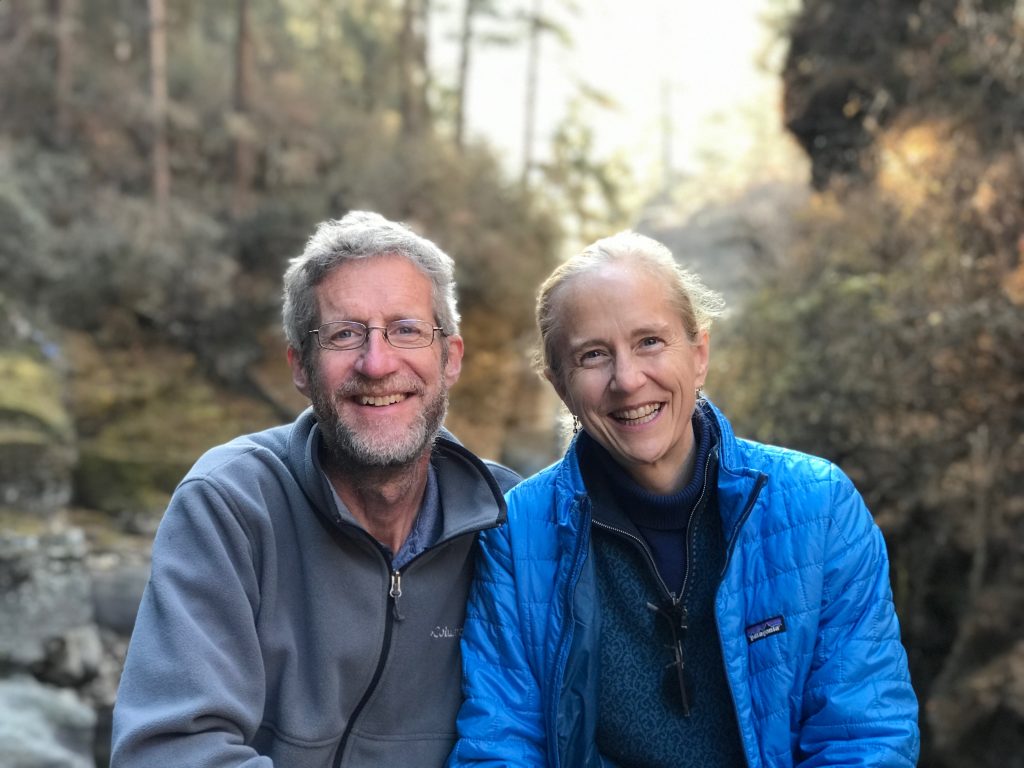
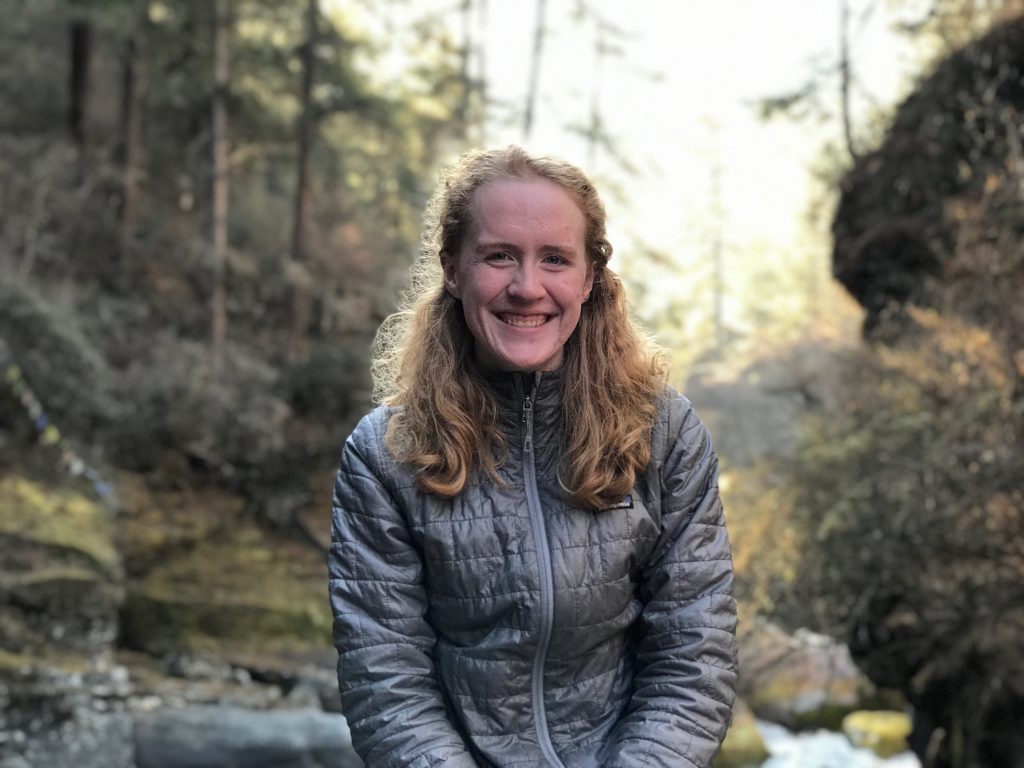
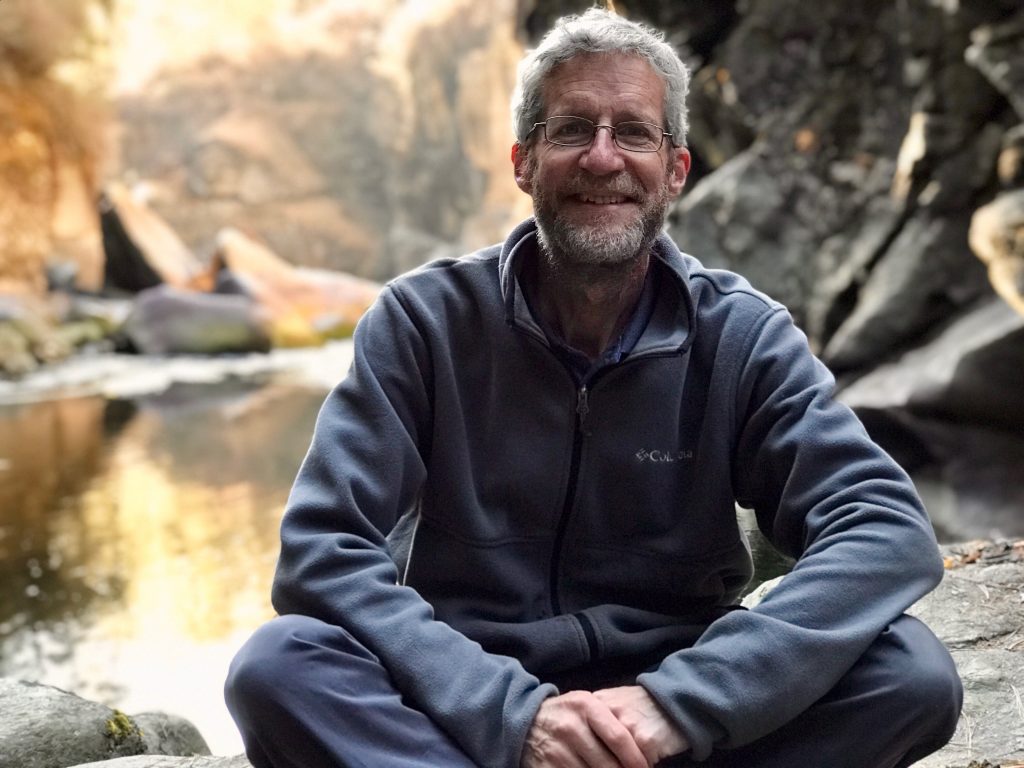
A covered bridge across the river is extravagantly garlanded with prayer flags, showing the importance of the site in religious terms:
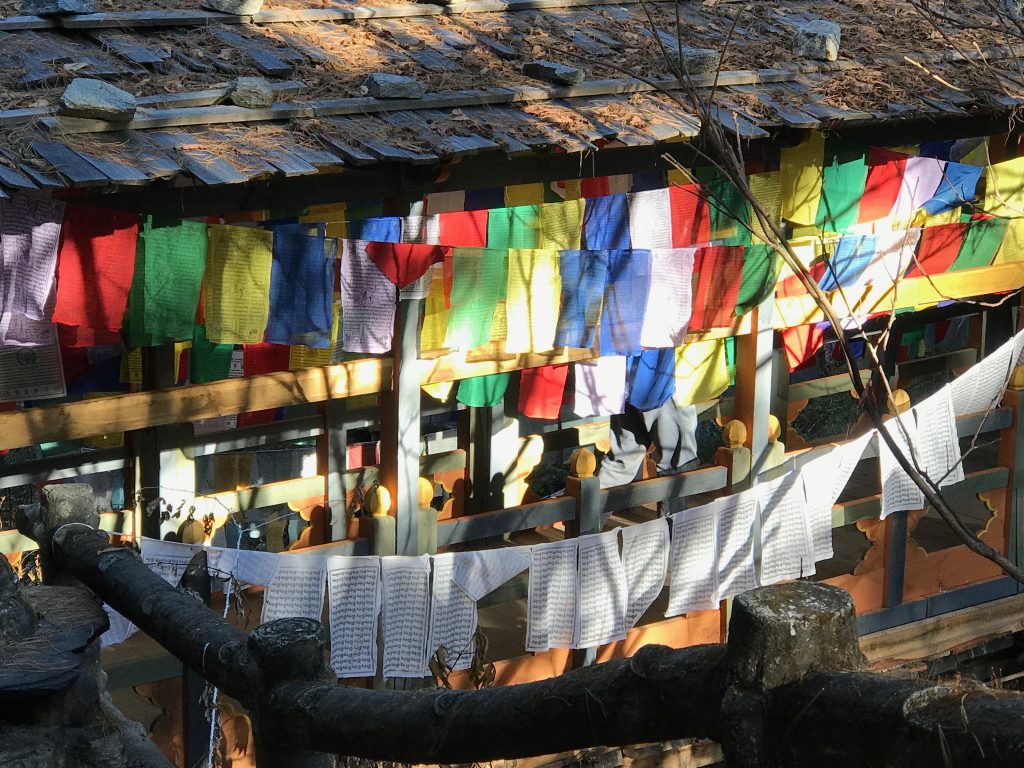
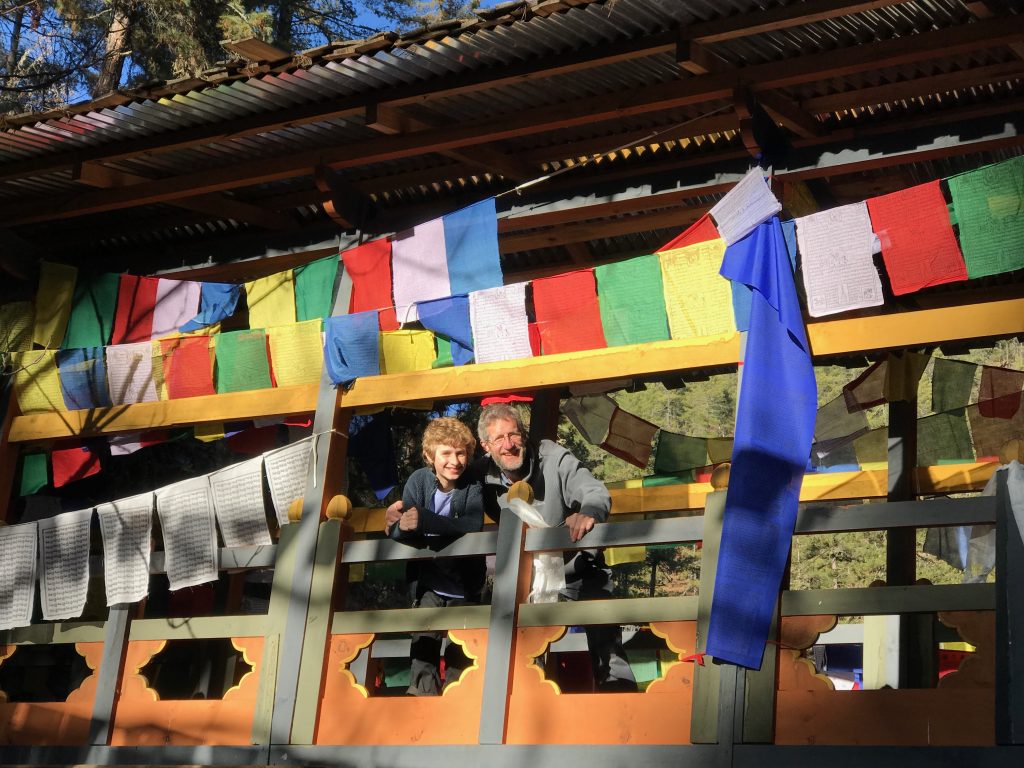
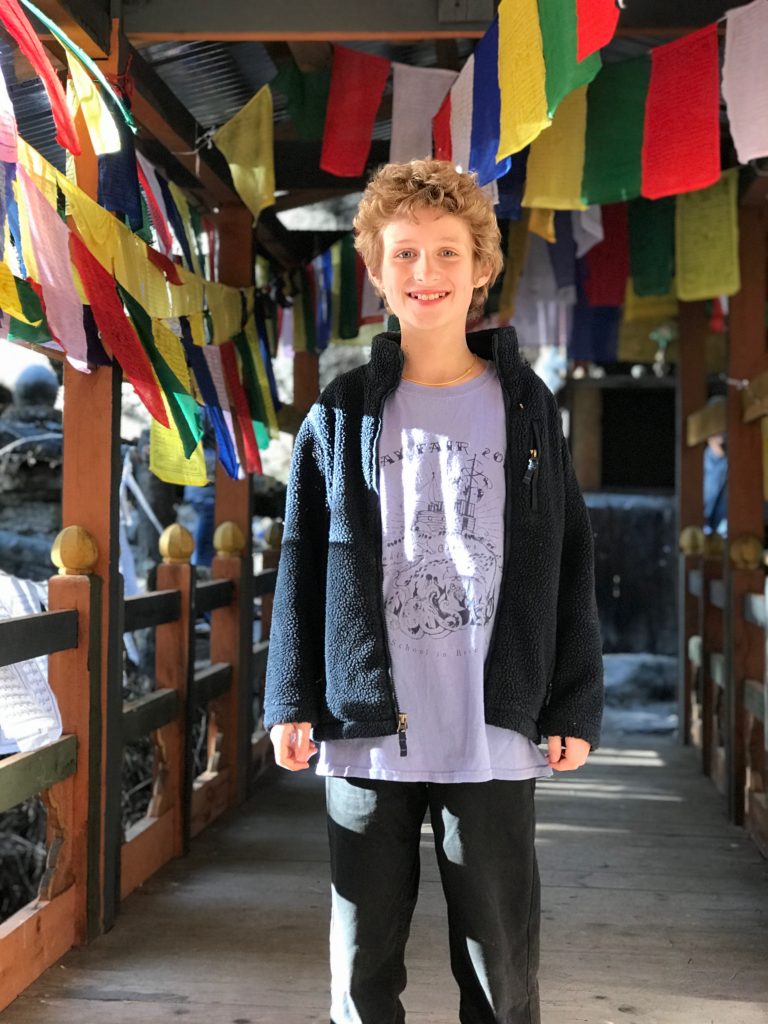
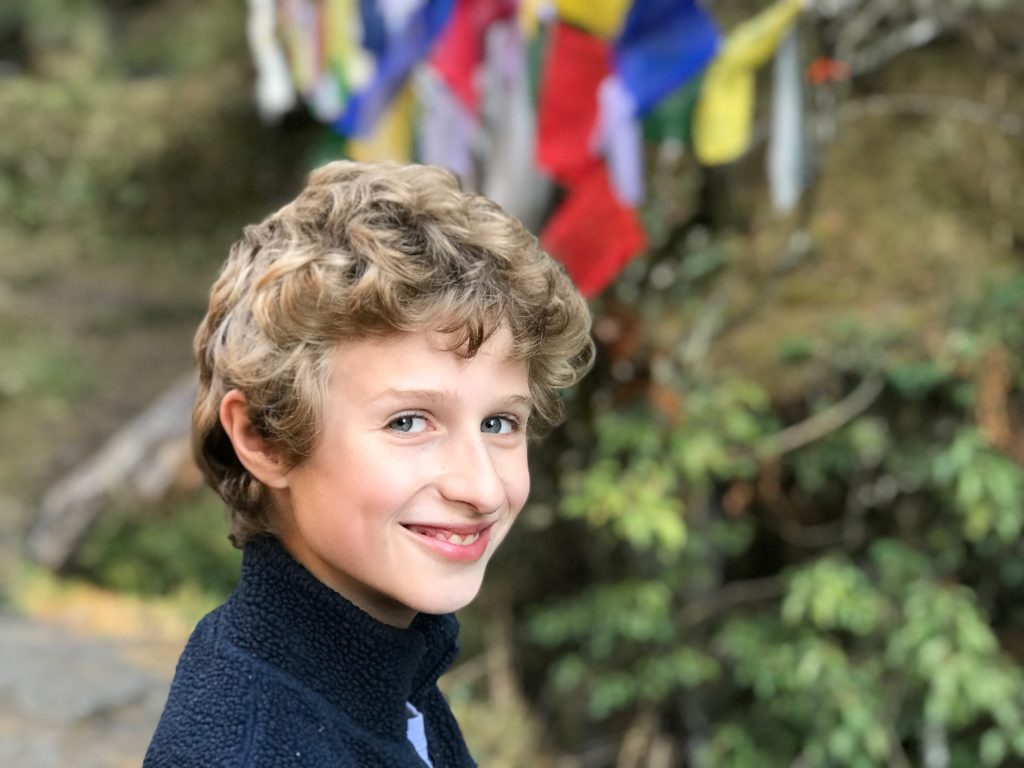
There was another karma-testing passage, this time requiring testers to crawl up a narrow cleft in the rock. Zoë cleared it easily; James gave up; Jeremy, being a little short for the footholds, took a little boost, and I managed the tight squeeze by turning upside down. Ugyen said he had tried a couple of years before but had given up: the rocky passage did not agree wit his girth.
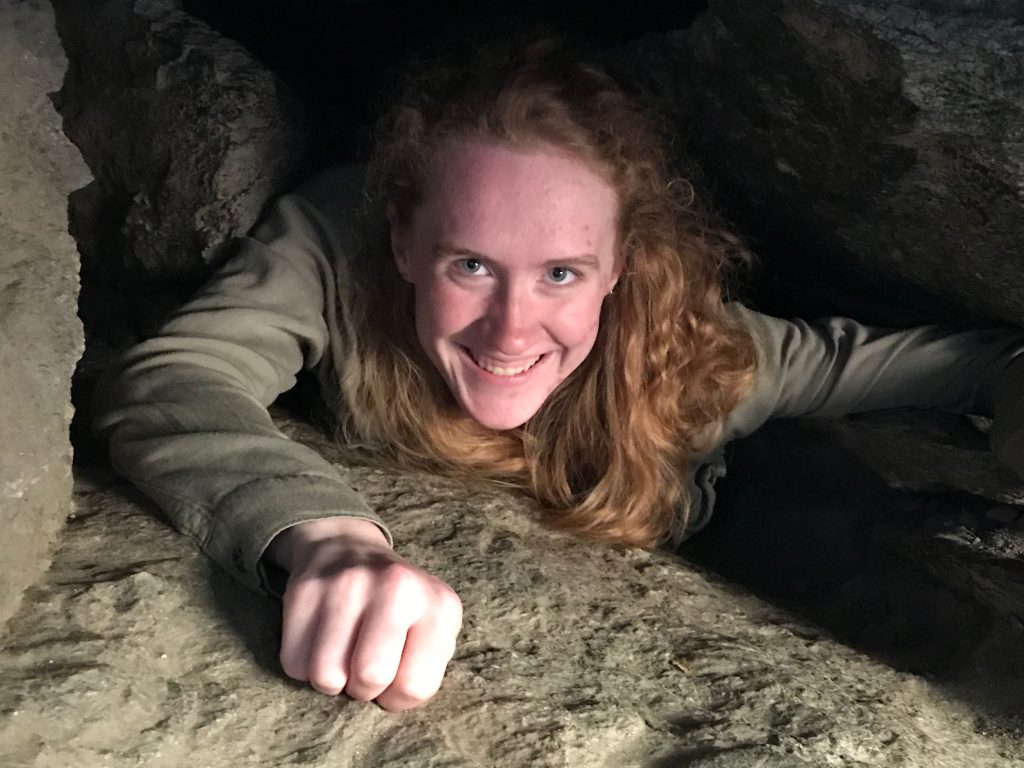
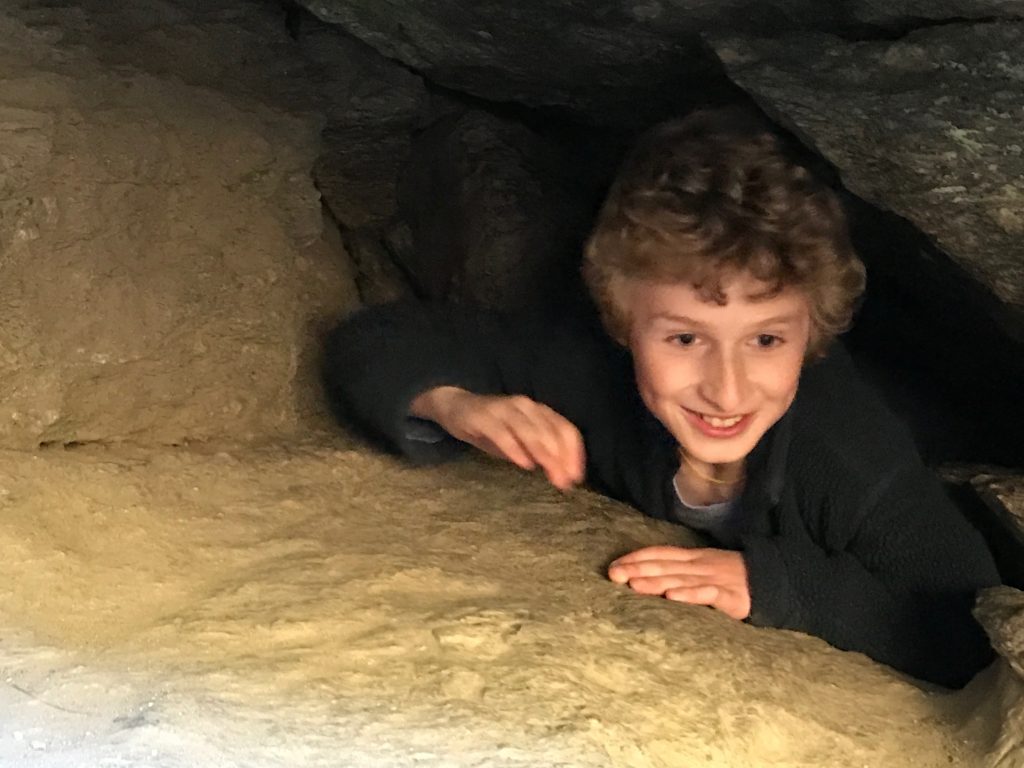
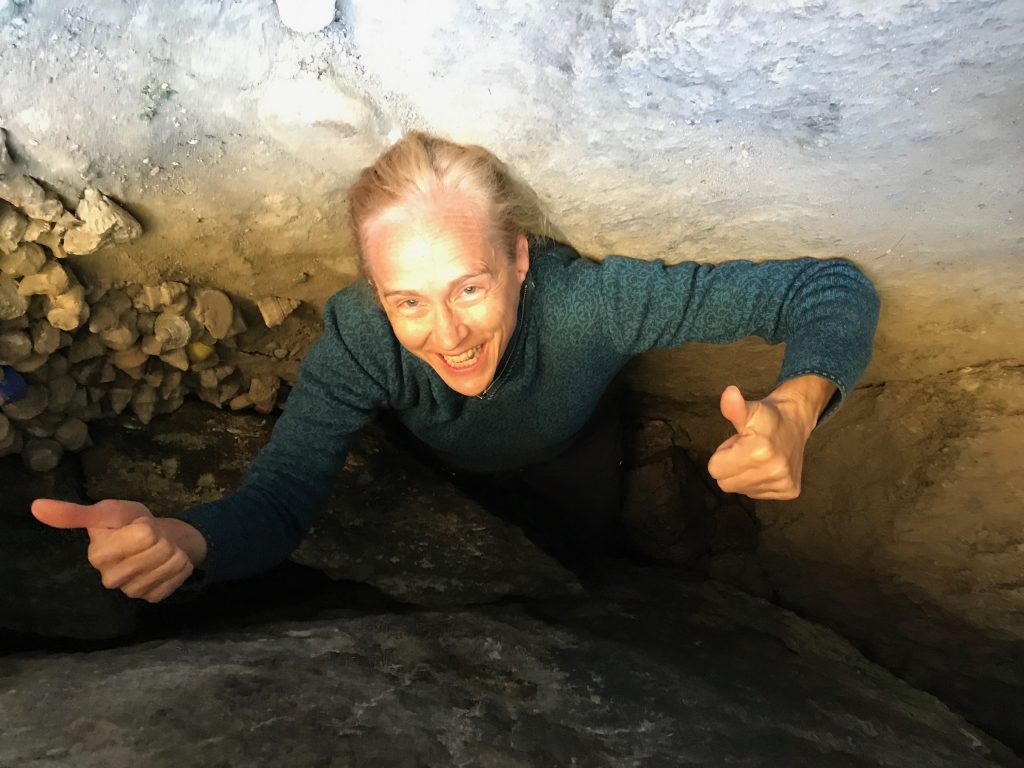
The upper side of the river was a peaceful place for us also:
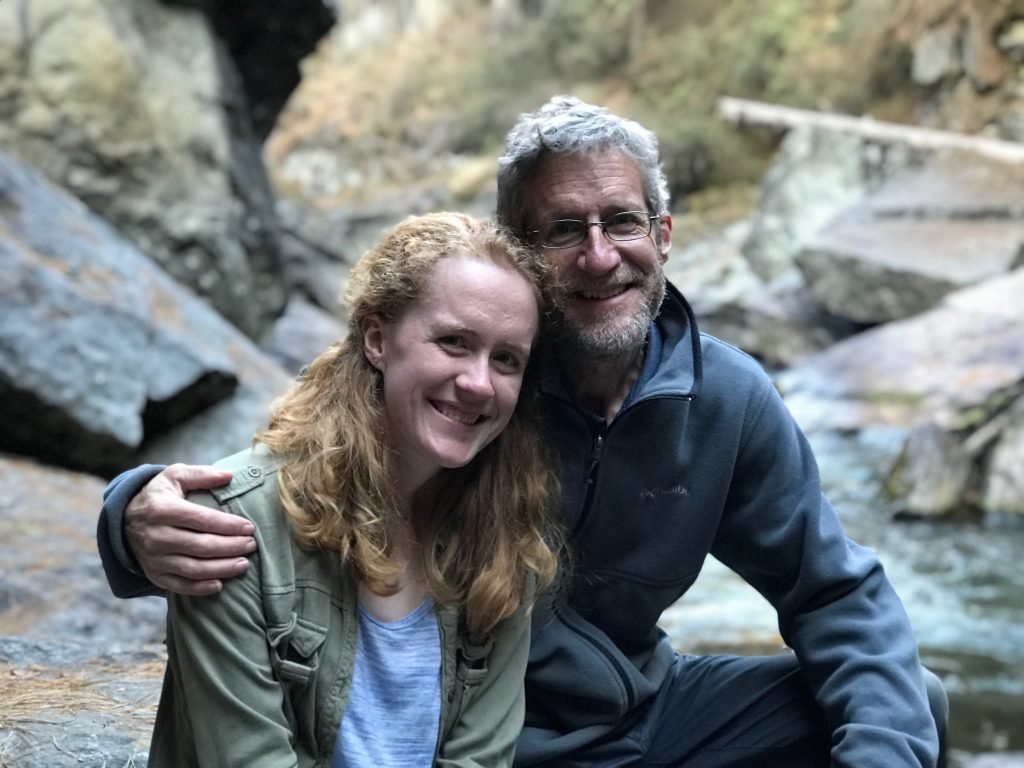
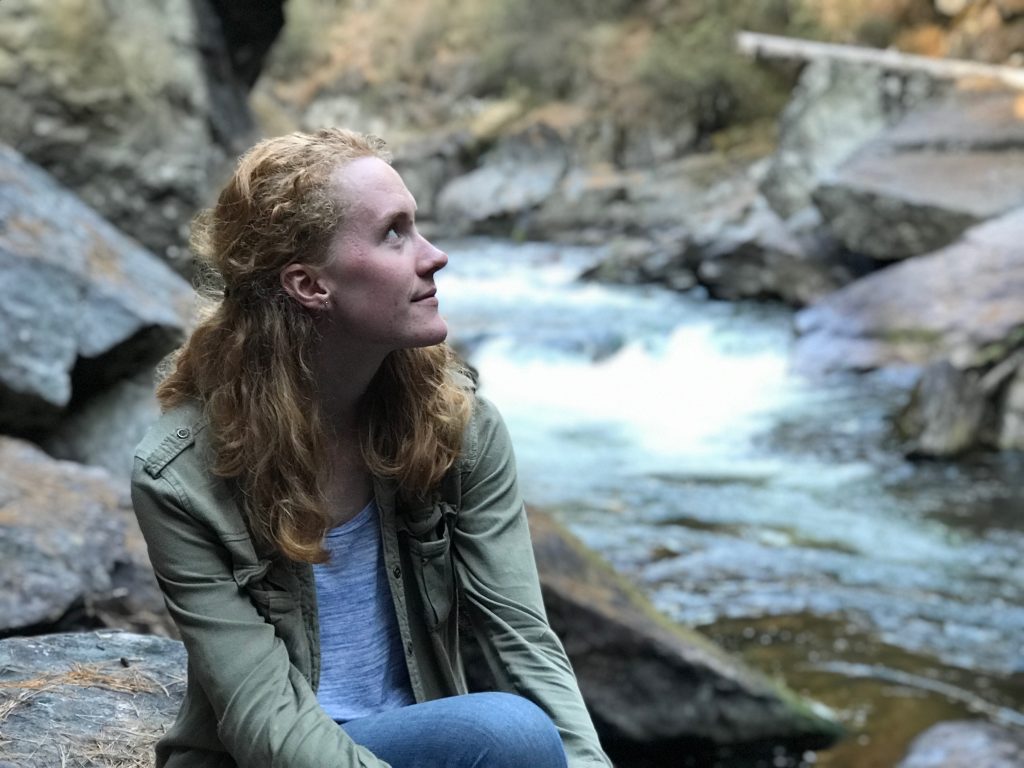
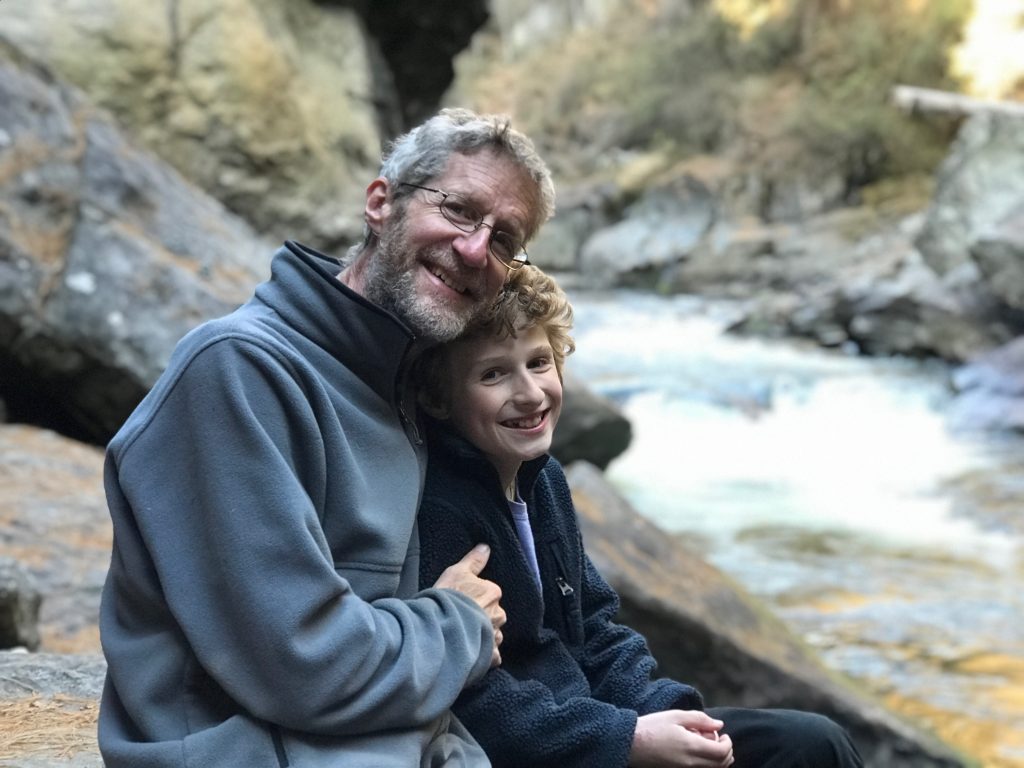
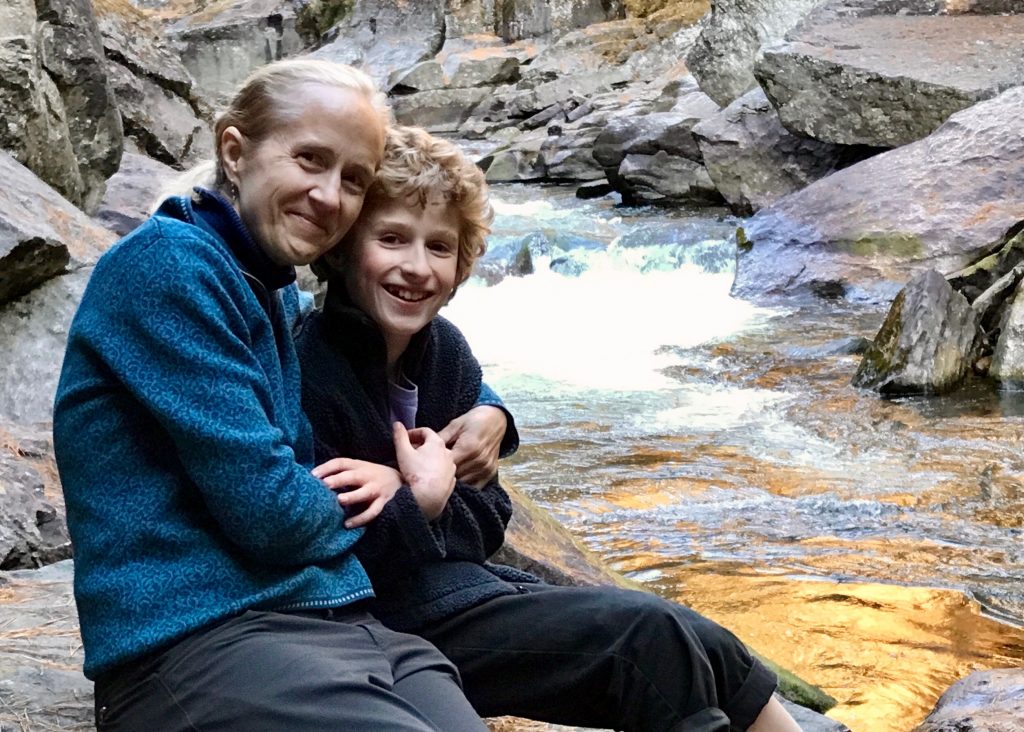
Meanwhile, back at the Swiss Guest House, Jeremy shot 15 baskets this afternoon, including three in a row! A red-letter day.
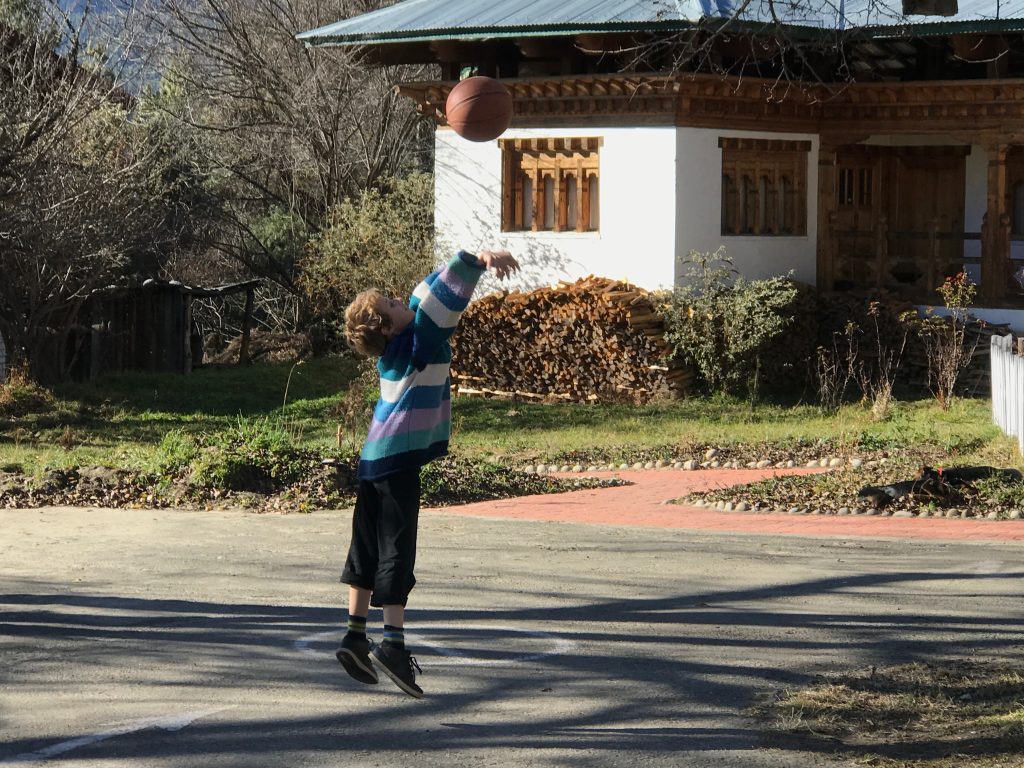
And have I mentioned the food?

